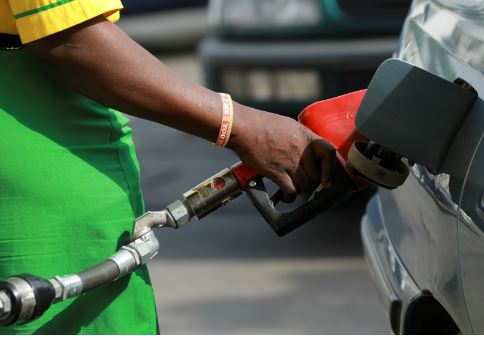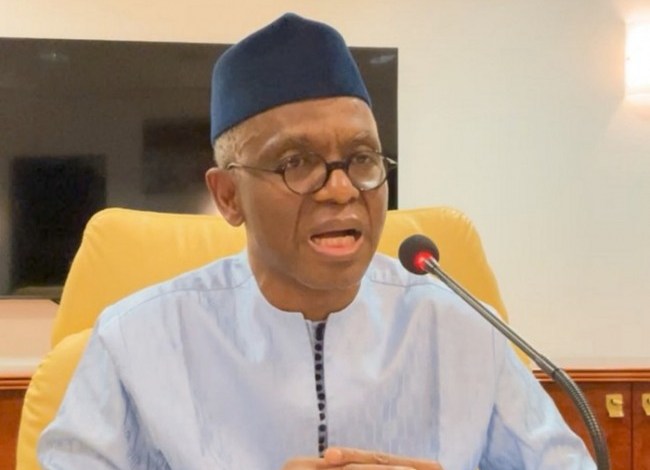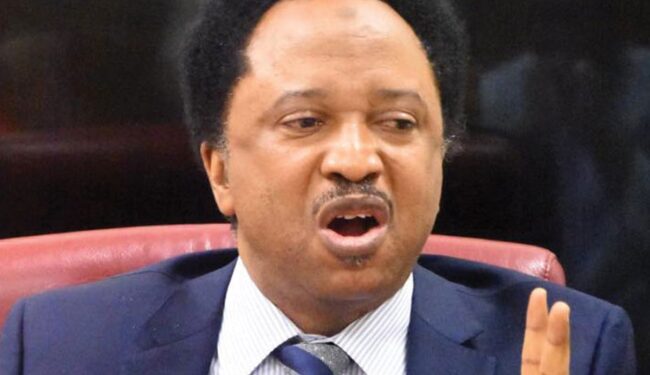By Tochu Okorie
President Bola Ahmed Tinubu has demonstrated rare courage in his few weeks in office. For one, the promptness with which he surgically dealt with the nagging issue of petroleum subsidy, not minding the asperity of his approach clearly underscores his agita for the wellbeing of the country, which apparently accounts for his persistence in his long-nursed ambition to be Nigeria’s president.
Whether the president was prepared for the level of economic hardship that has tailed that decision is a different ball game however. What plans he has for mitigating that is also indeterminate apparently going by the fuzzy signals coming from Aso Rock.
There appears to be no economic blueprint associated with Tinubu’s first executive function as president, indicative of acute deficit of deep and directed thinking in the process. Tinubu may have inadvertently introduced in Nigeria a shortcut to absolute poverty while availing insatiably corrupt Nigerian politicians greater opportunity.
A decision is only as good as the quality of the process, the parameters and expected outcomes. Few good decisions could ever be made by the rule-of- the-thumb and therefore all the angles and possible contingencies are usually considered. There should be no room for sentiments whatsoever. What process was adopted by the president in arriving at this decision? What are the decision parameters and what are the expected outcomes?
As an analyst over the years, I have been a proponent of a completely free market economy, advocating the removal of all subsidies. Considering the inherent systemic shock associated with it, my advocacy has always centred on a properly articulated, well-guided approach to it. The argument is that competition should be allowed to achieve the best price possible per time.
Of course, the narrative that subsidies have a destructive effect on the economy is lame and not empirically supported by any scientific or economic facts or principles. It is strictly about whatever guarantees the best price and lowest cost of living for the people.
There is no doubting the fact of dishonest practices in the administration of subsidy.
However, not many Nigerians know how Petroleum subsidy was administered as a two-pronged payment. First was the money paid to the importer based on agreed pricing template. This template was the difference between the sum of the international selling price, cost of freight and clearing charges less the regulated depot price. That difference is what government paid to the importer as subsidy. Round-tripping is the economic crime of recycling same cargo over and over and claiming subsidy on each round trip. Importers, in connivance with government officials, freely engaged in this crime until they were stopped.
The second was called PEF (Petroleum Equalization Fund) is the cost of haulage from the depots to the petrol stations. Government paid this based on standard haulage prices. At this level, what marketers did was, for each allocation, they would raise the ticket (by paying NNPC for the product), load and sell the product right at the depot and then go to NNPC to claim PEF. They stacked up allocations by bribing relevant officials. PEF office was always a beehive with many marketers being owed refund.
In response to these sharp practices, NNPC took over the process through crude oil swap deals. Rather than resolve the problem of subsidy, crude oil swap introduced what NNPC referred to as under-recovery which ran into Billions of dollars in trade deficit.
Question is, weighing the dishonest practices associated with subsidy administration against the net economic benefits of same, was the impulsiveness to the discontinuance of subsidy on PMS really worth it? The answer is in the imminent rise in cases of blood pressure complications, suicide rate, crime wave and general insecurity across the country and, of course, further consolidation of our claim to the coveted status of the poverty capital of the world.
The claim that Federal Government has made a saving of about 400 million USD so far may sound plausible. But it is actually specious because that money has been taken directly from the pockets of Nigerians punching a deep hole not just in their pockets but in their daily lives and livelihood, the worst hit being the low-income earner whose real income has been completely wiped out by the sharp rise in prices of everything.
Whether saving from subsidy removal can compensate for the increased number of Nigeria’s poor and attendant decline in socio-economic life of Nigerians is highly debatable.
PART 11
SUBSIDY BEYOND SENTIMENTS
Subsidies and taxes are critical fiscal policy tools. Globally, nations approach these vital macroeconomic issues from purely scientific and analytical perspectives deploying elaborate infographics for projections, with a view to predicting overall effects on other macro- and micro-economic variables. They are never used as public relations tools to try and appease anyone or make anyone happy with the government because both have detailed implications, both long and short term, for the economy.
Taxes, for example, are not merely used to generate revenue for the government. As important as that is, it is the least of the considerations in developing a nation’s tax policy. Primary considerations are usually given to the effect of a particular tax on, say, aggregate demand which must be in sync with the predetermined target demand considered optimal for desired economic growth level. This does not come cheap. It takes a lot of brainstorming by dedicated cerebral economists to arrive at what aggregate demand should be targeted if, for example, 5% growth is desired.
Similarly, subsidies are considered based on so many factors including the prices of competing imported alternatives and or the desire to grow local industries, bilateral trade agreements and tariffs on imports. Again, these are no run-of-the-mill decisions. To determine the desirability or otherwise of subsidy and on what product, critical analyses and projections must be made to understand net effects on the short run, mid-term and on the long run.
In our dear country Nigeria, the conversations around the desirability or otherwise of subsidy on petroleum products, unfortunately, have been more political than technical or scientific. This has resulted in what I consider a regrettable hasty plunge into a dark alley which is presently causing serious avoidable hardships and which will inevitably push the economy into deep recession owing to low productivity. An economy that crawled under a subsidy regime will definitely recede rapidly in a post subsidy. This is not rocket science. With real income coming down to as low as zero in majority of cases and given that over 40% of the population already lived below poverty line, the threat of mass starvation has never been more real. This cannot be dismissed as a doomsday prophecy. It is no prophecy at all. It is fact-based and empirically provable.
While many have accused the fledgling Tinubu administration of gross insensitivity, others allege ineptitude. For me, its all just politics. From the outset, opposition political parties saw the subsidy question as a populist campaign instrument which could be manipulated to their advantage leading to electoral victory. We saw this play out as the administration of Goodluck Jonathan was summarily flushed out on accusations of grand corruption with especial reference to what came to be dubbed the subsidy scam.
After scathing criticism of the Jonathan administration’s handling of petroleum products subsidy, the administration of President Muhammadu Buhari when confronted with the vast economic realities realised that it could not deviate much from the status quo. Subsidy became one of the worst nightmares of that administration.
Government had no real scientific reason to justify the retention. It only feared the political backlash. This much has only recently been admitted to by Buhari himself. Now in axing subsidy, there is still no scientific reason to justify government’s action save that government is too broke to afford subsidy. The ostensible reason adduced every so often is that it benefits only a few rich people (who own cars apparently). If this is not the glibbest and most ridiculous argument you have ever heard, I wonder what else you have heard. It is all politics.
This government will soon realize that the issue of subsidy is too serious for the sentimental approach with which it has been handled so far.
It is unfortunate that the government that is still at its cradle gloats and passes off subsidy removal as a rare achievement even while millions more Nigerians have been forced into instant poverty faced with starvation and accompanying health complications. In coming days and weeks, it will not surprise me to see a surge in crimes and criminalities as otherwise decent people device all kind of means in order to keep living.
Tochu Okorie, Financial Analyst, writes from Abuja and can be reached via toksokorie@gmail.com





